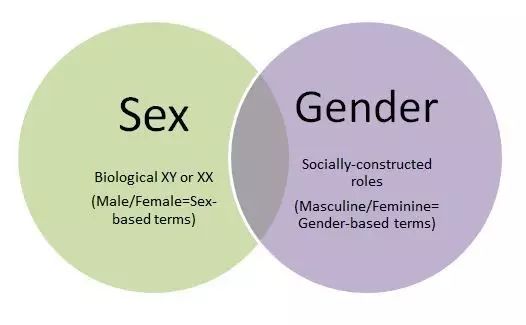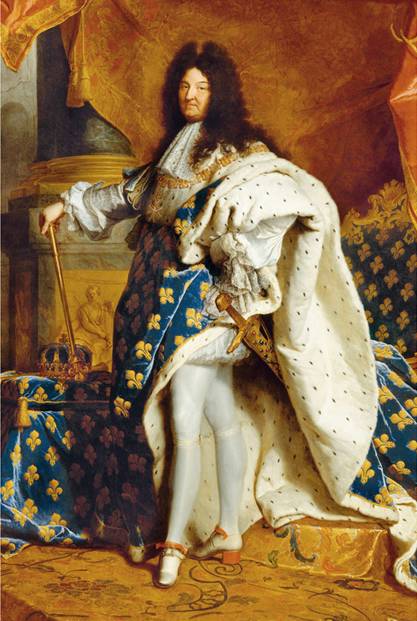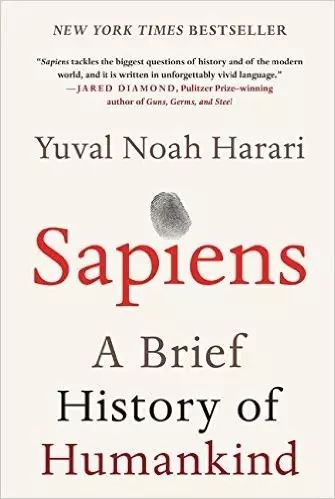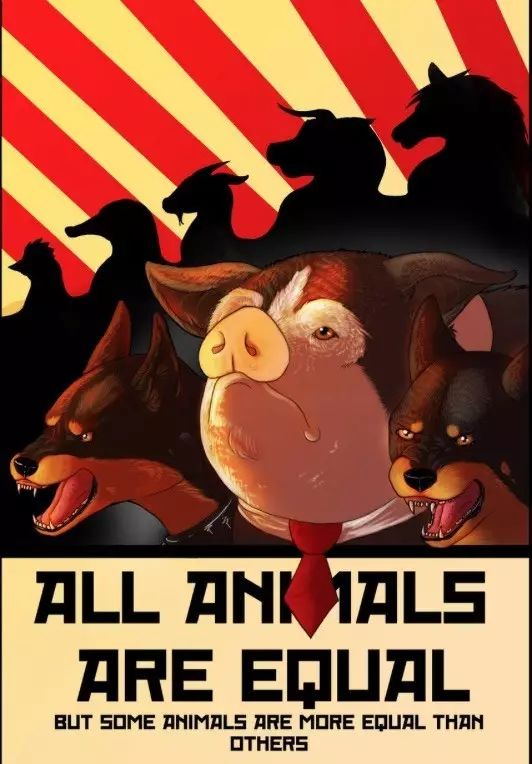gender和sex有什么区别?
Vocabulary.com上这样解释gender这个词:
If you've learned French, Spanish, or Latin, you know these languages assign genders to nouns, such as masculine, feminine, or neuter. Besides this grammatical use, gendermay seem interchangeable with the word sex, as they both mean "the state of being male or female." However, gender is usually used in reference to social differences. Sex on the other hand, is used in reference to biological differences. So if you're talking about how many females from 12 to 18 love vampire movies, then you're talking about gender. But if you're checking the M or F box on a health form, you're talking about sex, so to speak.
从这段话中我们可以得到三条信息:
gender在语法中是个术语,有些语言中(例如德语和俄语),代词和名词等可以分为阴性、阳性、中性
gender一般情况下可以和sex通用,表示性别。一般填表的时候通常是gender这个词
gender和sex的区别在于gender强调的是性别的社会属性,而sex强调的是生物属性。

学者们通常把生物学上男女的区别称为sex,它分为male和female,一个X染色体加一个Y就是男性(male);拥有两个X染色体就是女性(female),这是不会改变的客观标准。
而文化上的区分用gender这个词,分为man和woman,这个概念就复杂很多。例如我们的传统观念中认为女人应该遵守三从四德,应该相夫教子,这是社会给女人设定的义务,你不这样做你就“不够女人”;例如穿裙子、丝袜是女人的着装特点,如果一个男人穿裙子丝袜人们会认为他“不够男人”。
在不同时代和文化中,“够男人”和“够女人”的评价标准也不一样。在18世纪时纯爷们是这样的:

来自《人类简史》
这是法国国王路易十四。假发、丝袜、高跟鞋在他的那个时代是男子气概和男人味的典范(a European paragon of manhood and virlity)。
Yuval Noah Harari在Sapiens: A Brief History of Humankind(《人类简史》)中说:“Sex is child's play; but gender is serious business.” 性的事情好解决,但性别就没那么容易了。
To get to be a member of the male sex is the simplest thing in the world. You just need to be born with an X and a Y chromosome. To get to be a female is equally simple. A pair of X chromosomes will do it.
In contrast, becoming a man or a woman is a very complicated and demanding undertaking. Since most masculine and feminine qualities are cultural rather than biological, no society automatically crowns each male a man, or every female a woman. Nor are these titles laurels that can be rested on once they are acquired. Males must prove their masculinity constantly, throughout their lives, from cradle to grave, in an endless series of rites and performances.
And a woman’s work is never done -- she must continually convince herself and others that she is feminine enough. Success is not guaranteed. Males in particular live in constant dread of losing their claim to manhood. Throughout history, males have been willing to risk and even sacrifice their lives, just so that people will say ‘He’s a real man!’
这段文字写得很好,例如这里的crown, laurel既准确又形象, "constantly, throughout their lives, from cradle to grave" 三个表达意思差不多,起到了排比强调的作用。

我在有寒冷冬天和时常被贴上大男子主义标签的东北长大,上学的时候总会听到这样的话:“这你都不敢,你还是不是个男人啊!” “是个爷们都不能忍啊!” 我心里想,我是不是男人是你说了算啊!现在看来,我是不是男人还真和他们怎么说有关系: Real man/woman= male/female sex+ masculine/feminine social role,人是社会性动物,无法脱离“想象所构建出得秩序”。
尤瓦尔认为智人(Homo Sapiens)的一个过人之处在于我们会“讲故事”:As far as we know, only Sapiens can talk about entire kinds of entities that they have never seen, touched or smelled.
为了解决我们的争端,能够和谐相处,我们想象出了一些概念,例如“公司” “金钱” “国家” “法律”,这些概念存在我们的共同想象中,成为社会秩序。公元前1776年有《汉谟拉比法典》,公元后的1776年7月4日美国发表了《独立宣言》,尽管两者相差3000多年,但都是纯属虚构,如有雷同实属巧合。
当人人都相信一个谎言是真理时,这个谎言最终是否会变成真理呢?1984中Winston最后还是承认了“二加二等于五”,老大哥说等于几,你就要由衷地相信它等于几。

George Orwell的另一部作品Animal Farm,不听话就放狗咬你!
男人和女人应不应该做什么多半是文化的产物。尤瓦尔说: "Biology enables; Cultrue forbids." 生物学讲的是自然法则,它有无穷的可能性,而文化总是会半路杀出,封闭一些可能性。例如两个男人之间也能得到性愉悦,这种自然行为在一些文化中被极力否定。尤瓦尔认为这是一种文化偏见,而不是生物学的事实。
We accept the reality of the world with which we're presented. 人在江湖,身不由己, 由想象建构的秩序从我们出生那一刻起就影响着我们的所思所为。楚门活到30岁的时候,突然发现自己一直在虚假中,我们何尝又不是呢?我想我们能做的就是像梭罗那样:"...I wished to live deliberately, to front only the essential facts of life, and see if I could not learn what it had to teach, and not, when I came to die, discover that I had not lived.”

The Truman Show